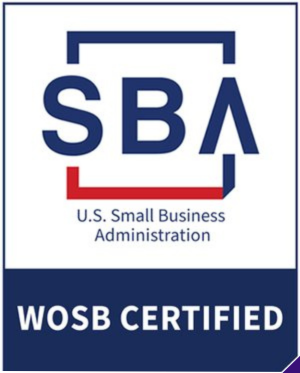Agile and Infrastructure Training
You want results? Train Harder
Come join and sign up for interactive training where we try to put best practices into practical application from experienced consultants.

Leading SAFe®
New to the Scaled Agile Framework®? Leading SAFe® offers you an introduction to the foundations of SAFe, and provides the principles and practices to confidently drive your Lean-Agile transformation. The course and resulting certification offer the guidance and tools to build a culture of resiliency and a shared language that engages employees and focuses on customers so that organizations can work with agility at scale.
Take a Leading SAFe course to discover how companies can build business agility, and how to make SAFe work inside your organization. You’ll come away with an understanding of how to align your entire organization around the same clear objectives, and how to improve the flow of value and work from strategy to delivery. You’ll learn what makes companies more customer-centric and how to run key SAFe alignment and planning events, like PI planning.
SAFe® for Government
More government agencies are adopting Lean-Agile practices to generate better results for stakeholders, including government and military personnel, contractors, and civilians. But how do you overcome legacy governance, contracting, and organizational barriers? How do you adapt private sector success patterns to the government context to deliver value faster?
In the SAFe® for Government course, you’ll learn how to apply Lean-Agile and SAFe practices in a government organization so you can deliver projects with speed and quality. Improve collaboration with teams and stakeholders, mitigate risk, and efficiently use taxpayer money.
SAFe® for Teams
What does it mean to be part of an Agile team on an Agile Release Train (ART) that delivers value to customers? SAFe® for Teams covers the tactical skills to be a high-performing member of an ART. The course also gives you the guidance and tools to work effectively in remote environments with distributed teams. Get the most out of your learning experience by taking it in context with your team and other teams on your ART.
SAFe for Teams will teach you all about your role on an Agile team and how your team works with others as part of an ART. You’ll learn how to plan and execute work, how to apply Scaled Agile Framework® and Agile principles, and how to continuously improve. Taking the Scaled Agile Framework® for Teams with your team will empower all of you with the collective knowledge to collaborate effectively, do the best possible work, and hit the ground running before your next planning event.
SAFe® Scrum Master
The SAFe® Scrum Master course equips attendees to coach Agile teams to deliver business value at scale. The course teaches you the tactical skills needed to be an effective Scrum Master in a SAFe organization. It also gives you the guidance and tools necessary for working in remote environments with distributed teams.
If you want to become a certified scrum master with the skills to help leading companies succeed with Agile and scrum, the SAFe® Scrum Master course is for you. Learn how scrum masters empower and lead Agile teams. Understand how to facilitate Agile events like iteration planning, team sync, and iteration retrospectives. And discover how to help teams plan and complete their work using SAFe Scrum and SAFe Kanban. You’ll also learn the principles of servant leadership, so you can help develop high-performing, engaged, continuously improving teams in your own organization.
Take your leadership skills to the next level. The SAFe® Advanced Scrum Master course will give you the tools to improve your coaching and facilitation skills, avoid common missteps, and encourage relentless improvement. You’ll learn how to apply Lean, Kanban, DevOps, and SAFe principles to improve team and business outcomes. You’ll up-level your facilitation skills for key Agile and SAFe events, whether they’re in person or across teams and time zones. And you’ll discover how communities of practice can support continuous improvement.
SAFe® Advanced Scrum Master
As a practicing scrum master in a SAFe organization, you have the tactical skills to coach Agile teams to deliver business value. Build on that solid foundation in the SAFe® Advanced Scrum Master course and discover how to facilitate success for Agile teams, Agile Release Trains (ARTs), and the organization. And get the guidance and tools you need to work effectively in remote environments with distributed teams.
Take your leadership skills to the next level. The SAFe® Advanced Scrum Master course will give you the tools to improve your coaching and facilitation skills, avoid common missteps, and encourage relentless improvement. You’ll learn how to apply Lean, Kanban, DevOps, and SAFe principles to improve team and business outcomes. You’ll up-level your facilitation skills for key Agile and SAFe events, whether they’re in person or across teams and time zones. And you’ll discover how communities of practice can support continuous improvement.
SAFe® Release Train Engineer
Unique to SAFe®, the Release Train Engineer (RTE) is part of the trio of leaders, including product managers and system architects. This is critical in leading Agile Release Trains (ARTs) to deliver value. The RTE must create the right environment, have the right conversations, facilitate the right meetings, and gather the right people to make decisions based on the right data.
In the SAFe® RTE course, you’ll learn to execute SAFe and continuously improve PI Planning and other vital SAFe events. You’ll discover how to coach leaders, teams, and Scrum Masters in new processes and mindsets. And you’ll get the guidance and tools you need to work effectively in remote environments with distributed teams.
SAFe® Product Owner/Product Manager
What skills do you need to deliver value in an Agile enterprise? The SAFe® Product Owner and SAFe® Product Manager (POPM) course covers the tactical responsibilities of these roles in the Agile Release Train (ART). The course and resulting certification give you the guidance and tools to work effectively in remote environments with distributed teams.
Learn how product owners and product managers should work together to achieve the best possible customer and business outcomes. The SAFe POPM course will teach you how to adopt a customer-centric approach to building products, using the Scaled Agile Framework® to deliver more value, faster. Topics covered in this course include the daily role of POs and PMs; collaborating with engineering teams and business stakeholders; how to write epics, features, and stories; and how to design, prioritize, build, test, and deliver products with increased productivity and higher quality.
SAFe® DevOps
Delivering valuable solutions faster doesn’t involve just engineers developing software. It involves introducing a shared DevOps mindset among all the people who define, build, test, deploy, and release software-driven products.
The SAFe® DevOps course helps people in technical, non-technical, and leadership roles optimize their development value stream from end to end. Take this course with your entire cross-functional team to map your current value stream from concept to cash. Design a Continuous Delivery Pipeline that’s relevant to your business. And get the guidance and tools you need to work effectively in remote environments with distributed teams.
SAFe® for Architects
In SAFe®, architects play a key role in the trio of leaders, including product managers and the Release Train Engineer. These people work together to deliver and guide Agile Release Trains (ARTs) to enable continuous value flow.
In the SAFe® for Architects course, you’ll get the context to align architecture with business value. You’ll understand how system, solution, and enterprise architects collaboratively deliver architectural solutions. And you’ll get the guidance and tools you need to work effectively in remote environments with distributed teams.
SAFe® and Lean-Agile Assessments
Use the Measure and Grow tools and guidance to determine your progress towards Business Agility. These resources include a video and toolkit designed to help you to prepare to facilitate, and assessments on Business Agility and the SAFe seven core competencies. Reach out to learn more and try the online SAFe assessments.
Implementing SAFe®
Ready to lead a Lean-Agile transformation? Need a deeper understanding of the Scaled Agile Framework? Looking to teach SAFe courses yourself?
Implementing SAFe® offers attendees the broadest level of insight into each layer of a SAFe implementation. This course is for those who want to be a leader in a Lean-Agile transformation. This course and resulting certification will help you understand the roles of each person in SAFe organization and then plan and guide a SAFe transformation. You’ll learn how to identify value streams, launch agile release trains, optimize flow, and apply OKRs to Strategic Themes that define the targeted outcomes for the SAFe transformation. You’ll also practice the principles of Agile product management and product delivery. If you’re looking for a comprehensive and practical understanding of how to help an organization achieve business agility effectively, Implementing SAFe® is the right course for you.
Agile HR Explorer
A profound shift is happening in the way enterprises approach people management. Human Resource departments are realizing that traditional HR practices don’t support Agile teams and the needs of today’s rapidly changing business environments. To bridge this gap, Agile HR Explorer provides learners with the guidance needed to align HR practices with the SAFe transformation and their Agile teams.
This one-day introductory course is designed for HR professionals and leaders in a Lean-Agile environment to gain a high‐level understanding of Agile methodology and its influence on Human Resources. In Agile HR Explorer, learners will explore the new world of work and learn why Agile is instrumental in creating more stable, responsive, and successful organizations.
The course was created by one of the leading thought leaders in the world of Agile HR, Just Leading Solutions (JLS)©.
SAFe® Release Train Engineer
Unique to SAFe®, the Release Train Engineer (RTE) is part of the trio of leaders, including product managers and system architects. This is critical in leading Agile Release Trains (ARTs) to deliver value. The RTE must create the right environment, have the right conversations, facilitate the right meetings, and gather the right people to make decisions based on the right data.
In the SAFe® RTE course, you’ll learn to execute SAFe and continuously improve PI Planning and other vital SAFe events. You’ll discover how to coach leaders, teams, and Scrum Masters in new processes and mindsets. And you’ll get the guidance and tools you need to work effectively in remote environments with distributed teams.
Agile Software Engineering
What skills do you need to deliver high-quality, software-centric solutions faster and more predictably? In the Agile Software Engineering course, you’ll learn how modern practices including XP, behavior-driven development (BDD), and test-driven development (TDD) enable continuous value flow and built-in quality. This interactive, three-day course also gives you guidance and tools to work effectively in remote environments with distributed teams.
In the SAFe® RTE course, you’ll learn to execute SAFe and continuously improve PI Planning and other vital SAFe events. You’ll discover how to coach leaders, teams, and Scrum Masters in new processes and mindsets. And you’ll get the guidance and tools you need to work effectively in remote environments with distributed teams.
The Agile Software Engineering course will give you and your team the knowledge and tools to apply and build a test-first, technical infrastructure. You’ll learn how to detail, model, design, implement, verify, and validate stories in a Scaled Agile Framework® (SAFe) continuous delivery pipeline, and how to use automated testing. You’ll also develop a foundational understanding of Lean, Agile, and DevOps principles to apply in everyday practices.
Lean Portfolio Management
Aligning strategy with execution is critical to any organization’s success and a key aspect of Scaled Agile Framework®. With a Lean Portfolio Management (LPM) approach, you can collaborate across silos, empower teams, and organize around value to adapt to what customers want, faster.
The Lean Portfolio Management course helps executives, project management officers (PMOs) and other key stakeholders plan dynamically and be flexible enough to adjust initiatives and budgets as the market changes. The LPM course provides the guidance and tools attendees need to work effectively in remote environments with distributed teams. You’ll learn how to connect portfolio strategy and initiatives to the agility planning and execution of work, how to integrate feedback from participatory budgeting, and how to adapt to change while maintaining your funding vision and roadmap.
In the SAFe® RTE course, you’ll learn to execute SAFe and continuously improve PI Planning and other vital SAFe events. You’ll discover how to coach leaders, teams, and Scrum Masters in new processes and mindsets. And you’ll get the guidance and tools you need to work effectively in remote environments with distributed teams.
The Agile Software Engineering course will give you and your team the knowledge and tools to apply and build a test-first, technical infrastructure. You’ll learn how to detail, model, design, implement, verify, and validate stories in a Scaled Agile Framework® (SAFe) continuous delivery pipeline, and how to use automated testing. You’ll also develop a foundational understanding of Lean, Agile, and DevOps principles to apply in everyday practices.
Agile Product Management
In SAFe®, product managers play a key role in the trio of leaders, including architects and the Release Train Engineer. These people work together to lead the Agile Release Trains (ARTs) in continuously delivering value.
In the Agile Product Management course, you’ll explore how to use design thinking to put your customers at the center and create products that are desirable, feasible, and sustainable. You’ll discover how continuous exploration fuels innovation. You’ll get the guidance and tools you need to work effectively in remote environments with distributed teams. And you’ll explore how to define a vision, strategy, and roadmap to satisfy existing customers and attract new ones.
In this two day class* students are challenged to explore the Agile and Scrum principles so they can better understand what to do when applying Scrum to support their teams and organizations.
The course, developed by Scrum.org, uses a combination of instructor-led and activity-based learning where students work together in teams. Professional Scrum Trainers (PSTs) bring their own Scrum Master experiences and stories to the class and use their skills as professional trainers to deliver the material using their own unique delivery style. The result is an engaging, enjoyable learning experience where students gain a deep understanding of Scrum theory and principles, the Scrum Master accountabilities and why each element of the Scrum framework is important.
Students leave this course with an appreciation for Professional Scrum, the agile mindset and how to deal with common myths and impediments to agility. They gain the knowledge and understanding about how to choose and apply the appropriate practices and techniques that will be most beneficial for their Scrum Teams.
Professional Scrum™ with Kanban (PSK) is an interactive, activity-based training course that teaches experienced Scrum Masters and other Scrum practitioners how to improve the way they work by applying Kanban practices in the context of Professional Scrum. Through theory, case studies and hands-on exercises, students will learn how Kanban practices can help Scrum Teams achieve better outcomes by improving the flow of work.
Organizations using DevOps, Continuous Integration and Continuous Delivery (CI/CD) will find adding flow to their application of Scrum to be a natural complement.
The course also includes a free attempt at the globally recognized Professional Scrum with Kanban (PSK I) certification exam.
As organizations are facing new entrants in their respective markets, they need to stay competitive and release new and updated products on a regular basis rather than one or two times a year.
The DevOps Foundation course provides a baseline understanding of key DevOps terminology to ensure everyone is talking the same language and highlights the benefits of DevOps to support organizational success.
The course includes the latest thinking, principles and practices from the DevOps community including real-world case studies from high performing organizations including ING Bank, Ticketmaster, Capital One, Alaska Air, Target, Fannie Mae, Societe Generale, and Disney that engage and inspire learners, leveraging multimedia and interactive exercises that bring the learning experience to life, including the Three Ways as highlighted in the Phoenix Project by Gene Kim and the latest from the State of DevOps and DevOps Institute Upskilling reports.
Learners will gain an understanding of DevOps, the cultural and professional movement that stresses communication, collaboration, integration, and automation to improve the flow of work between software developers and IT operations professionals.
The course is designed for a broad audience, enabling those on the business side to obtain an understanding of microservices and containers. Those on the technical side will obtain an understanding as to the business value of DevOps to reduce cost (15-25% overall IT cost reduction) with increased quality (50-70% reduction in change failure rate) and agility (up to 90% reduction in provision and deployment time) to support business objectives in support of digital transformation initiatives.
Unique and exciting exercises will be used to apply the concepts covered in the course and sample documents, templates, tools, and techniques will be provided to use after the class.
This certification positions learners to successfully complete the DevOps Foundation examination.
The SRE (Site Reliability Engineering) Foundation℠ course is an introduction to the principles & practices that enable an organization to reliably and economically scale critical services. Introducing a site-reliability dimension requires organizational re-alignment, a new focus on engineering & automation, and the adoption of a range of new working paradigms.
The course highlights the evolution of SRE and its future direction, and equips participants with the practices, methods, and tools to engage people across the organization involved in reliability and stability evidenced through the use of real-life scenarios and case stories. Upon completion of the course, participants will have tangible takeaways to leverage when back in the office such as understanding, setting and tracking Service Level Objectives (SLO’s).
The course was developed by leveraging key SRE sources, engaging with thought-leaders in the SRE space and working with organizations embracing SRE to extract real-life best practices and has been designed to teach the key principles & practices necessary for starting SRE adoption.
This course positions learners to successfully complete the SRE Foundation certification exam.
The DevOps Leader course is a unique and practical experience for participants who want to take a transformational leadership approach and make an impact within their organization by implementing DevOps. Leading people through a DevOps evolution requires new skills, tools, innovative thinking, and transformational leadership. Leaders up, down and across an organization must align and collaborate to break down silos and evolve the organization.
The course highlights the human dynamics of cultural change and equips participants with practices, methods, and tools to engage people across the DevOps spectrum through the use of real-life scenarios and case studies. Upon completion of the course, participants will have tangible takeaways to leverage when back in the office such as understanding Value Stream Mapping.
The course was developed by leveraging key DevOps leadership sources to extract real-life best practices in leading DevOps initiatives and has been designed to teach the key differences and emerging practices for DevOps ways of working through leadership in a fast-paced DevOps and Agile environment.
This certification positions learners to successfully complete the DevOps Leader exam.
As companies deploy code faster and more often than ever, new vulnerabilities are also accelerating. When the boss says, “Do more with less”, DevOps practices adds business and security value as an integral, strategic component. Delivering development, security, and operations at the speed of business should be an essential component for any modern enterprise.
Course topics covered include how DevSecOps provides business value, enhancing your business opportunities, and improving corporate value. The core DevSecOps principles taught can support an organizational transformation, increase productivity, reduce risk, and optimize resource usage.
This course explains how DevOps security practices differ from other approaches then delivers the education needed to apply changes to your organization. Participants learn the purpose, benefits, concepts, vocabulary and applications of DevSecOps. Most importantly, students learn how DevSecOps roles fit with a DevOps culture and organization. At the course’s end, participants will understand “security as code” to make security and compliance value consumable as a service.
No course would be complete without practical application and this course teaches the steps to integrate security programs from the developers and operators through the business C-level. Every stakeholder plays a part and the learning material highlights how professionals can use these tools as the primary means of protecting the organization and customer through multiple case studies, video presentations, discussion options, and exercise material to maximize learning value. These real-life scenarios create tangible takeaways participants can leverage upon their return to the home office.
This course positions learners to pass the DevSecOps Foundation exam.
This course provides an introduction to Agile Service Management, the application, and integration of agile thinking into service management processes. Agile thinking improves IT’s effectiveness and efficiency and enables IT to continue to deliver value in the face of changing requirements.
IT Service Management (ITSM) focuses on ensuring IT services deliver value by understanding and optimizing their end-to-end value streams. This course cross-pollinates Agile and ITSM practices to support end-to-end Agile Service Management by scaling to “just enough” process leading to improved flow of work and time to value.
Agile Service Management helps IT to meet customer requirements faster, improve the collaboration between Dev and Ops, overcome constraints in process workflows by taking an iterative approach to process engineering that will improve the velocity of process improvement teams to get more done.
This course positions learners to successfully complete the CASM exam.
The IT Infrastructure Library (ITIL) is a framework that standardizes selecting, planning, delivering, and maintaining the information technology (IT) services in a business. First developed by the Central Computer and Telecommunications Agency (CCTA) in Great Britain during the 1980s, it has been updated frequently over the years. Currently, it comprises a library of five volumes. Enterprises can use ITIL as a guideline for best practices in their complete IT service lifecycle. This systematic approach is important to businesses that choose to adopt it because it can help them manage risk, strengthen their relationship with customers, establish cost-effective practices, and build an IT stable infrastructure that can grow, scale, and develop over time.
The ITIL 4 Foundation certification is for individuals who want to prove their knowledge of the current version of the IT Infrastructure Library (ITIL). It provides a modular approach to the ITIL framework and consists of a series of qualifications that focus on different aspects of ITIL best practices in detail. The exam also tests your knowledge of the four dimensions of service management, which are organizations and people, information and technology, partners and suppliers, and value streams and processes. There are five different levels of ITIL certification available: Foundation, Practitioner, Intermediate, Expert, and Master. Earning an ITIL 4 Foundation certification at any level will prove your understanding of key concepts of Lean, Agile, and DevOps and how to use them to deliver business value.
As companies deploy code faster and more often than ever, new vulnerabilities are also accelerating. When the boss says, “Do more with less”, DevOps practices adds business and security value as an integral, strategic component. Delivering development, security, and operations at the speed of business should be an essential component for any modern enterprise.
Course topics covered include how DevSecOps provides business value, enhancing your business opportunities, and improving corporate value. The core DevSecOps principles taught can support an organizational transformation, increase productivity, reduce risk, and optimize resource usage.
This course explains how DevOps security practices differ from other approaches then delivers the education needed to apply changes to your organization. Participants learn the purpose, benefits, concepts, vocabulary and applications of DevSecOps. Most importantly, students learn how DevSecOps roles fit with a DevOps culture and organization. At the course’s end, participants will understand “security as code” to make security and compliance value consumable as a service.
No course would be complete without practical application and this course teaches the steps to integrate security programs from the developers and operators through the business C-level. Every stakeholder plays a part and the learning material highlights how professionals can use these tools as the primary means of protecting the organization and customer through multiple case studies, video presentations, discussion options, and exercise material to maximize learning value. These real-life scenarios create tangible takeaways participants can leverage upon their return to the home office.
This course positions learners to pass the DevSecOps Foundation exam.
Explore Jira’s features that help your team succeed through powerful Agile boards, roadmaps, reports, and automation.
This class is designed to talk through Infrastructure and Operations best practices aligned with Agile best practices. Come learn how to align Business Agility with Operations.
Trusted by leading organizations nationwide


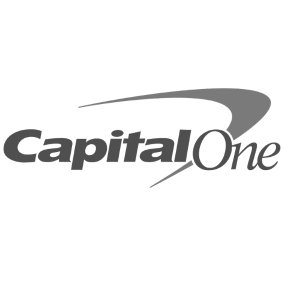


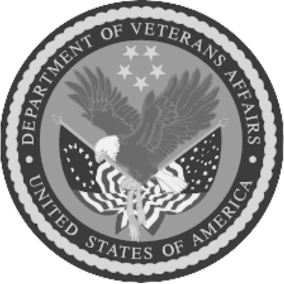
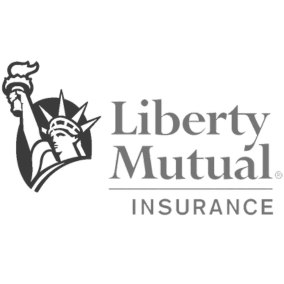



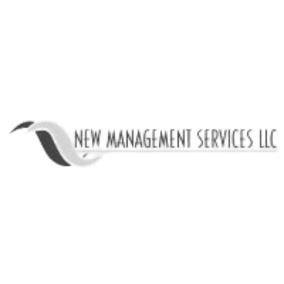
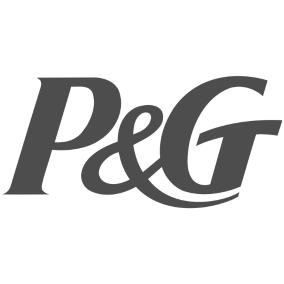
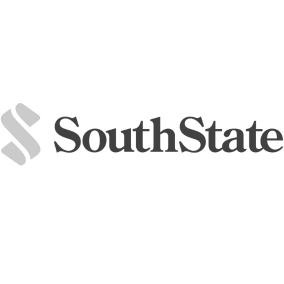
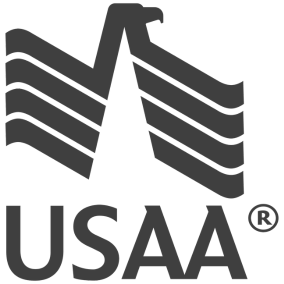
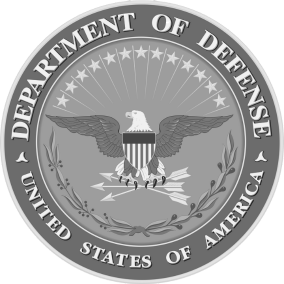
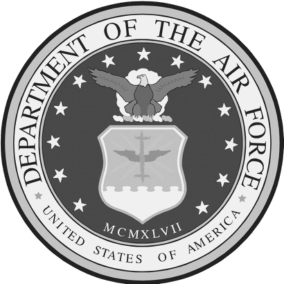
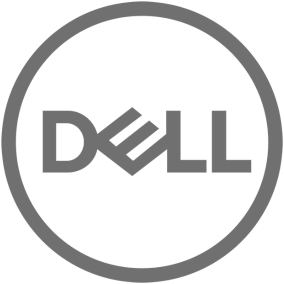

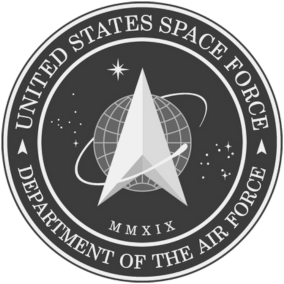
What our clients are saying!

Joshua Kikta
Liberty Mutual Insurance

Elizabeth Shirkey
South State Bank

Ryan Fillman
Digital Management, LLC

Customer Feedback

Customer Feedback







